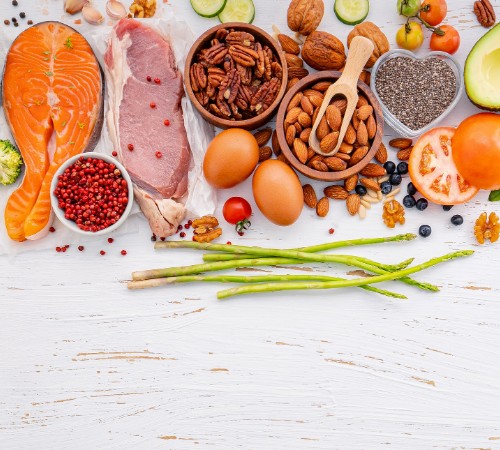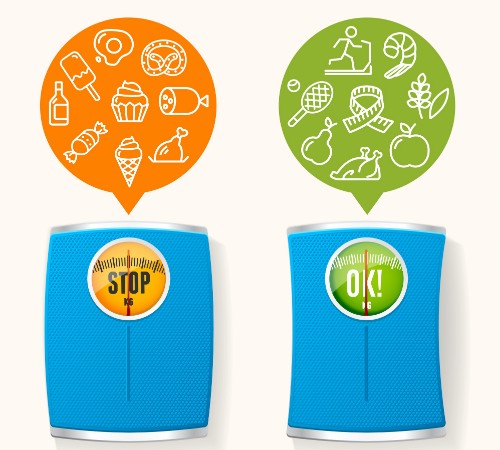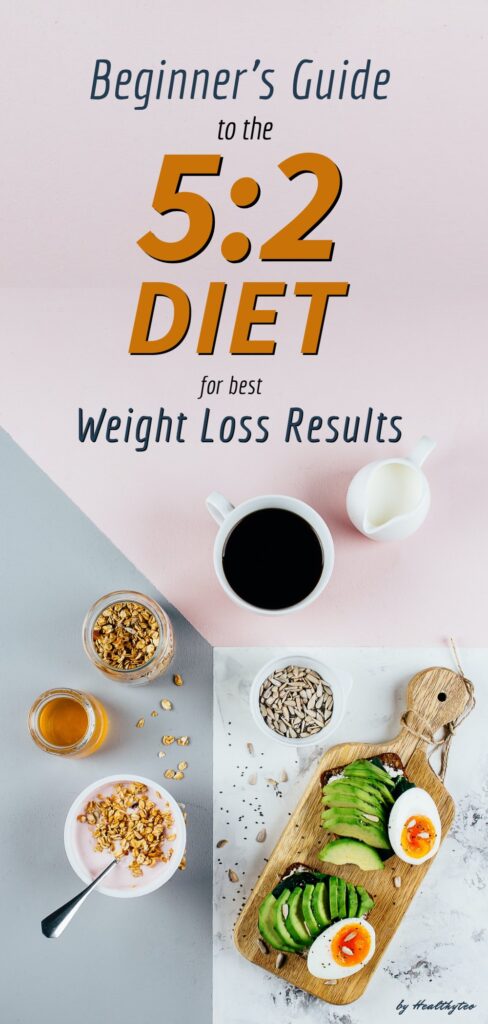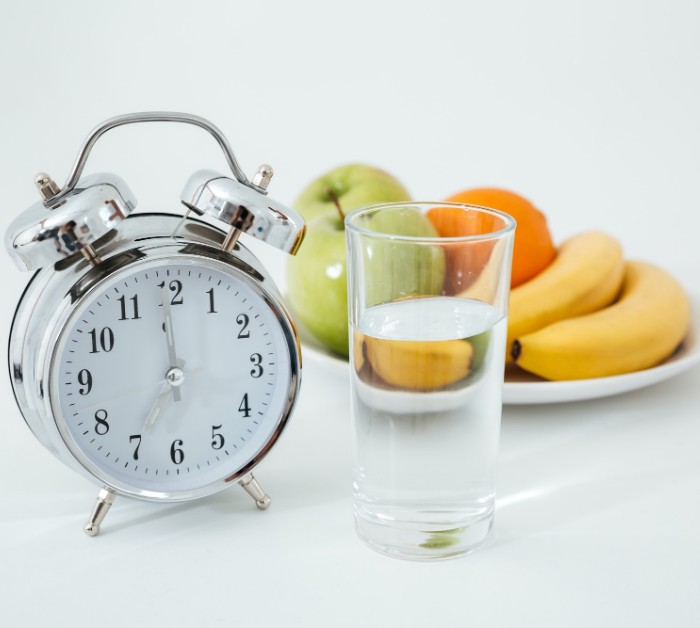The beginner’s guide to the 5:2 diet for best weight loss results
If you want to lose some weight and don’t want to follow some strict rules or restrictive diet plan then the 5:2 diet is maybe something that you should try. This simple but effective intermittent fasting method involves reducing food intake just two days a week.
You eat normally for 5 days a week and only reducing your food intake for just 2 days a week. Isn’t this a great way to lose some weight?
If you’re interested in how it works, what and when to eat on a 5:2 diet, stay on this page. We will try to explain everything about this fasting method and what to expect if you decide to start with it!
This post may contain affiliate links, which means we may receive a small commission, at no cost to you, if you make a purchase through a link. For more information, please see our disclosure.
What is the 5:2 diet and how does it work?
The 5:2 diet is a type of intermittent fasting that involves eating regularly for 5 days of the week and drastically limiting caloric intake on the other 2 days. Also called The Fast Diet this is currently the most popular intermittent fasting diet.
While this is a popular type of fasting, unlike a true fast where you’re not eating for a set amount of time, by following the 5:2 diet you will cut caloric intake on fasting days to 25% or just one-quarter of a person’s regular intake on the remaining days.
So, if you regularly eat 2,000 calories per day you would eat 500 calories on fasting days.
This diet is so popular because there are no requirements about which foods to eat but rather when you should eat them. Another great thing is that fasting days are not consecutive, people typically space their fasting days out.
For example, the two reduced-calorie days of the week can be Monday and Thursday or Wednesday and Saturday.
You might find this calorie-restricted style of fasting twice a week is an easier plan to follow than a schedule like a 16/8, which requires you to restrict your eating window daily for 8 hours.
If you want to find out more about the 16/8 intermittent fasting method here is good reading for you – 16/8 Intermittent Fasting For Beginners: What To Eat and Is It Good For Weight Loss?
It’s important to remember that eating “normally” on non-fasting days doesn’t mean that you should eat junk food, processed food, or too many sweets, then you probably won’t lose weight and you may even gain weight. You should eat the same amount of food as if you hadn’t been fasting at all.
Basic rules of 5:2 diet
The 5:2 diet is a calorie-restricted diet. For 2 days each week you eat no more than 500 calories ( 600 calories for men or 500 calories for women), the other 5 days you eat normally.
When you read that you just need to cut your calorie intake for just two days a week it sounds simple and indeed it is simple. But over the week your body has typically been denied around 3,000 calories.
In the days of low-calorie intake, the response of our body is to lower levels of insulin thereby causing stored sources of sugar in our fat cells to be used as energy. In theory, we lose weight if we allow the insulin levels to go down far enough and for long enough, we burn off our fat.
Compared to eating less every day in a controlled manner, both strategies appear to deliver the same weight loss outcomes.
What to eat on a 500-calorie fasting day?
There isn’t a distinct way of eating on fasting days if you decide to follow the 5:2 diet. The main principle is that on fast days, a person consumes just 25% of their normal calorie intake.

Generally, there are two meal patterns that people who practice this type of fasting follow:
- Two slightly bigger meals: Only lunch and dinner.
- Three small meals: Breakfast, lunch, and dinner.
The main focus on the fasting days is to reduce the calories you eat. If an individual regularly eats 2,000 calories per day, they should only consume 500 calories on fast days.
A person who usually eats 1,800 calories per day should reduce their calorie intake to 450 calories on fast days.
When is the best time to have breakfast, lunch, and dinner, and how does meal-timing affect 24-hour energy metabolism?
In a controlled eating scenario, researchers from the University of Alabam conducted a study looking at the effect of time of eating on the benefits of intermittent fasting. In this research, all meals were fitted into an early 8-hour period of the day ( 7 a.m. to 3 p.m. ) or spread out over 12 hours ( between 7 a.m. and 7 p.m.).
The results showed that changing the timing of the meals, by eating earlier in the day and extending the overnight fast, significantly benefited metabolism even in people who didn’t lose any weight at all. Further, the eight-hour group also had a significantly decreased appetite and wasn’t as hungry.
If you decide to get all 500 calories with just one meal on your fasting days, it is good to know what are the effects on your body of eating just one meal a day.
Foods to eat
On fast days it’s crucial to keep the body satisfied by eating foods that are rich in filling nutrients such as fiber and protein. High-fiber and high-protein foods will make you feel full without consuming too many calories.
- Protein
Consuming protein during fast days is vital for staying full during fast days. You should focus on lean sources of protein without too much fat.
- Beans, peas, and lentils
- Whitefish
- Eggs
- Lean animal cuts
- Tofu
- Fiber and vegetables
Compared with animal products and grains, vegetables can be very low in calories meaning more vegetables can fit into a small meal. Dark leafy greens and salads are a good way to add bulk to a meal and help you feel fuller without eating extra calories.
- Dark berries
Dark berries such as blackberries and blueberries may fulfill sweet cravings without adding many calories.
- Soups
Studies have shown that soups may make you feel more full than the same ingredients in their original form, or foods with the same calorie content. The added water and spices from the broth may help a person feel more satisfied without eating too many calories.
If you want to find out more about foods and meals that you can prepare to start with the 5:2 diet here is our suggestion for the recipe book: The 5:2 Diet Cookbook with over 75 recipes and meal plans.
Also, you can try this 5:2 Starters Guide: The 2-day Diet with 100 new delicious dishes for 500-calorie fasting days.
What to drink on the 5:2 diet?
On the 5:2 diet, you should aim to drink water as much as possible during your fasting days, it will help you to stave off hunger for a little longer and will keep you hydrated which is very important.
Coffee or tea – You can drink unsweetened coffee or tea during fast days. But some people who follow this diet found that coffee or tea stimulates their digestive system making them feel hungry. Herbal tea is another option and another alternative to increase the person’s intake.
Foods to avoid
On your fasting days, you should avoid foods like excess fats (cooking oils, cheese, and animal fats), processed foods (typically refined and high in calories), refined carbohydrates (such as pasta, bread, and white rice).
Try to limit sugars and don’t snack between meals. Also, avoid eating and snacking at night-time especially on the days when not fasting.
How effective is the 5:2 diet for weight loss?
One of the main reasons why people choose to follow the 5:2 eating pattern is because if it’s done right can be very effective for weight loss. This is mainly because the 5:2 diet helps you consume fewer calories.

Fasting 2 days per week may sound extreme for some people, but many people find it much easier than traditional calorie-counting diets. On the 5:2 diet, you should count calories only twice a week, making tracking calories much easier.
According to a review from 2019, the 5:2 fasting and traditional calorie-counting diet achieve the same amount of weight loss. Just remember, if you are practicing the 5:2 fasting method to lose weight it’s very important not to compensate for the fasting days by eating much more on the non-fasting days.
Also, a review from 2011 shows that intermittent fasting causes a much smaller reduction in muscle mass when compared to weight loss with conventional calorie restriction.
How much weight can you lose per week on the 5:2 diet?
If you fast twice a week it cuts out roughly 3,000 calories which usually translates to about a pound (0.45 kg) per week lost.
If you don’t follow the diet properly and you overeat on your non-fasting days it can have a negative effect on your weight loss and it can quickly wipe out your calorie deficit and stall.
Positive and potential negative effects of the 5:2 fasting method
Like every eating plan and diet, the 5:2 fasting method also comes with some pros and cons.
Advantages:
- You get to choose your fasting days
- No foods are off-limits
- Intermittent fasting is associated with many health benefits
Disadvantages:
- Hunger and other side effects
- Possibility of overeating
- Hard to start
The best thing about the 5:2 diet is that you’re free to choose your fasting days based on your schedule. Most people who follow this eating pattern choose to fast during the week when it’s easier to stick to a routine.
On weekends, you may find yourself at family gatherings or social events where it’s harder to stick to your fasting protocol.
The 5:2 diet requires some serious dedication in the beginning. You’ll deal with severe hunger and other side effects for the first fast, and possibly the first few fasts. Diets that require restricting calories always present the risk of overeating.
Not only can this result in the unpleasant side effects of over-eating (excessive gas and bloating, may make you nauseous, sleepy ), but you may not reach your weight loss goals.
What to do if you feel weaker or uncontrollably hungry during fasting days
It’s normal to feel a little weaker or hungry during the first few fasts. However, you’ll be surprised at how quickly the hunger fades, especially if you try to keep busy with work or other activities.
5:2 fasting can also cause:
- Poor concentration
- Feeling cold
- Headaches
- Low energy
- Dizziness
The low energy and feeling of cold generally improve as your body adjusts to the fasting routine. Poor concentration, dizziness, headaches are often the result of dehydration, so make sure you’re drinking plenty of liquids during your fast.
People that tried this type of fasting claim that the fast days become easier after the first few fasts. If you are a beginner with fasting it’s a good idea to keep a small snack handy during your first few fasts, just in case you feel faint or ill.
If you repeatedly find yourself feeling ill or faint during fast days, have something to eat and talk with your doctor about whether you should continue. Keep in mind that intermittent fasting is not for everyone and some people are unable to tolerate it.
Is fasting 2 days a week healthy and who should avoid intermittent fasting overall?
Intermittent fasting can be a great strategy to help you achieve optimal health. There are numerous scientific evidence suggests that intermittent fasting in all forms may have the following benefits:
- Lower risk of type 2 diabetes
- Reduced blood pressure
- Improved insulin sensitivity
- Weight Loss
- Lower risk of cardiovascular disease
To find out more about the benefits and potential side effects of intermittent fasting visit this article: What Is Intermittent Fasting And How Does It Work?
Who should avoid the 5:2 diet?
Intermittent fasting is generally safe for healthy, well-nourished people but it’s not for everyone. Some people should avoid dietary restrictions and fasting. Especially if you are:
- Individual who often experience drops in blood sugar levels
- If you have a history of eating disorders
- Pregnant women, women who are trying to conceive, nursing mothers
- If you are underweight or have known nutrient deficiencies
- Teenagers and children
This type of fasting isn’t recommended for everyone and especially if you find yourself in this group of people who shouldn’t fast. Also, it’s recommended to always consult a doctor before making any significant changes to your diet.
FAQ
Can you exercise on a 5:2 diet?
Yes, you can still exercise if you’re fasting 2 days a week. Exercising on a 500 calorie day can speed up weight loss and improve overall health and fitness.
However, if you’re not used to doing much exercise, start slowly and listen to your body – don’t overdo it on an empty stomach. With any diet or exercise regime, people’s bodies react differently and the most important thing is to stay safe and healthy!
How much does the fast diet cost?
Cost isn’t really a factor for the 5:2 fasting method. There is a good chance that you’ll wind up buying fewer foods on fast days, and thus spend less money on food. But if you follow the diet rules and get your calories from high-quality foods, they can be a bit pricier.
How should I spread my calories across a fast day?
It doesn’t matter when you consume the calories, as long as you keep it below the limit. You can spread out the calories however you want, for example, you can have breakfast and dinner. Lunch and dinner. Or you can eat just a big lunch. You choose for yourself!
Why I am not losing weight on the 5:2 diet?
If you feel that the diet is not working for you have a look at your normal eating days if you are not overcompensating and bingeing on food.

Final thoughts about the 5:2 diet
The 5:2 diet is a good alternative to a conventional calorie-restricted diet, and it’s an easy and effective way to improve your metabolic health and lose weight.
In the beginning, maybe it will be hard to get used to eating just 500 calories a day twice a week, but people who are practicing this fasting method say that it is much easier when you adjust to this eating pattern and they also say that the results are great.
Anyway, this diet is not for everyone, if you decide to start with this diet you should consult with your doctor or dietitian first.




